Garden Club Ideas for Seniors: Fun and Engaging Activities
Starting a garden club for seniors is a wonderful way to bring people together and foster a sense of community. Engaging in gardening activities not only keeps seniors active but also provides them with an opportunity to socialize and make new friends.

What are the best ways to create meaningful and enjoyable garden club experiences for seniors? Whether it’s through vegetable gardening, potting parties, or crafting garden art, there are countless ways to make the club an enriching experience. If you’re looking to start such a club, you’ll discover ideas and suggestions that can help you along the way.
1) Container Gardening
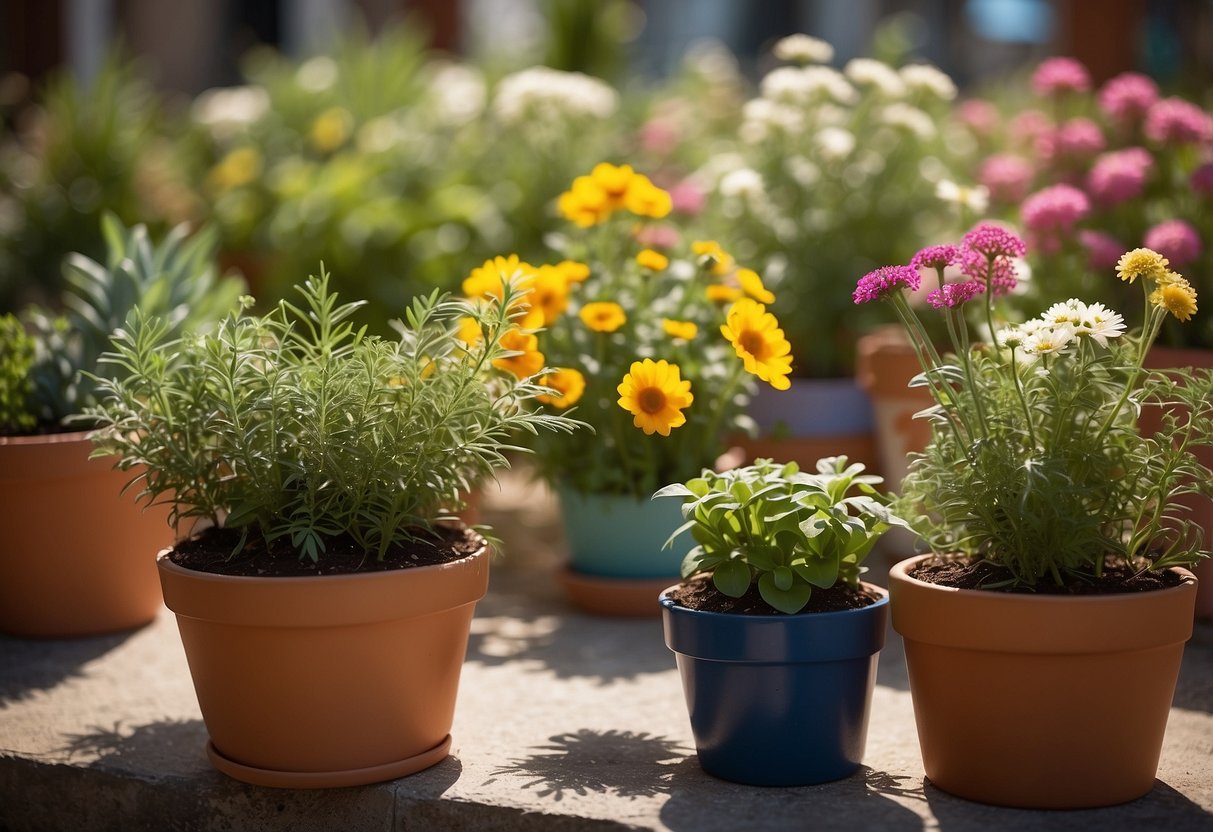
Container gardening is a great way for seniors to enjoy gardening without needing much space. You can use pots, tubs, or even old buckets to start your garden.
Make sure your containers have good drainage to prevent water from pooling. Consider using a mix of topsoil, coconut coir, and compost for healthy plants.
Choose the right container size for your plants. Small containers work well for herbs, while larger ones can hold flowering plants or vegetables. You might want to put a layer of mulch on top to keep the soil moist longer.
2) Herb Gardens

Creating an herb garden is perfect for seniors. It’s simple, rewarding, and provides fresh herbs for cooking.
Start with easy-to-grow herbs like basil, mint, or rosemary.
Use pots or small containers to keep the herbs manageable.
Place them on a sunny windowsill or a balcony.
Regularly water your herbs and trim them to encourage growth.
Enjoy the fresh flavors in your meals!
3) Birdwatching Stations
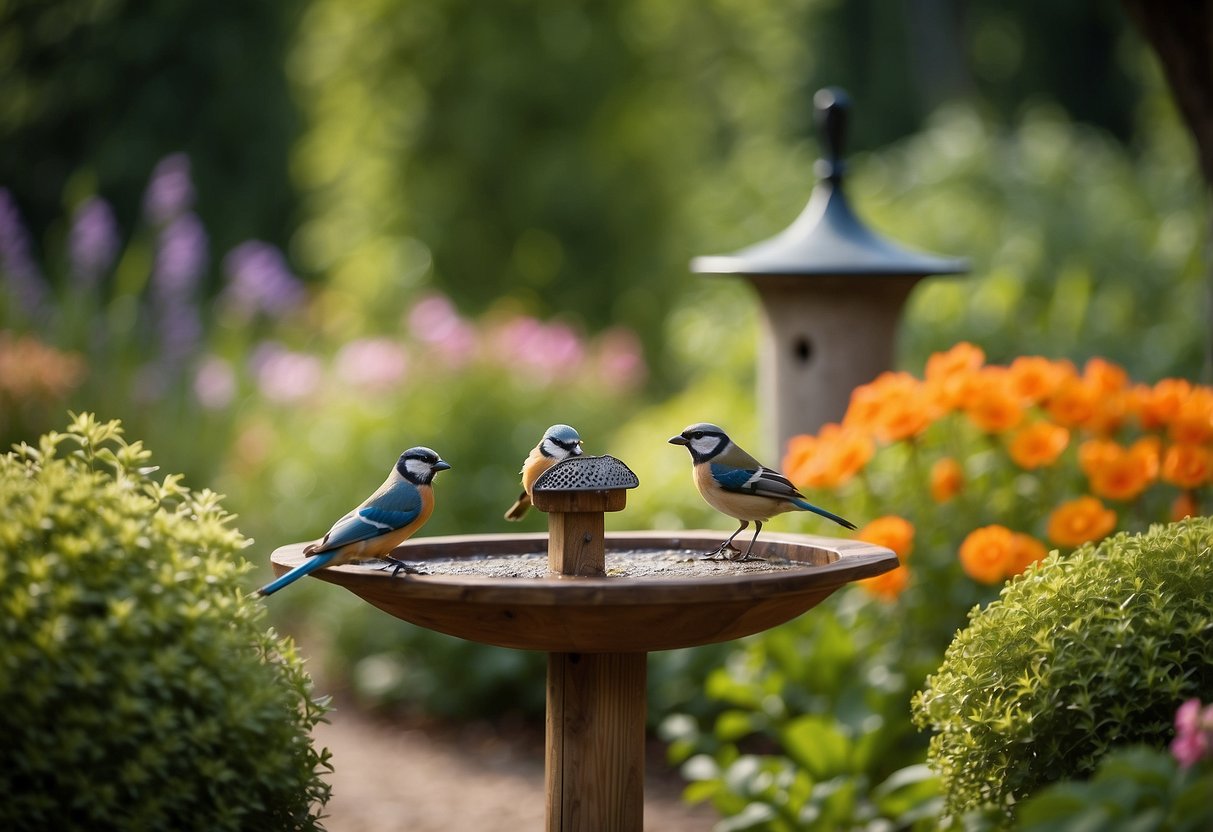
Set up birdwatching stations in your garden club to make the experience enjoyable. Place feeders at different spots so members can watch birds up close.
Use comfortable seating, like benches or chairs, near the feeders.
Install birdbaths and nesting boxes to attract more birds. Encourage members to bring binoculars and bird guides for better viewing. For more tips, check out these birdwatching tips for seniors. You can learn how to create accessible spaces here. Birdwatching can be a perfect, relaxing activity for your garden club.
4) Raised Vegetable Beds
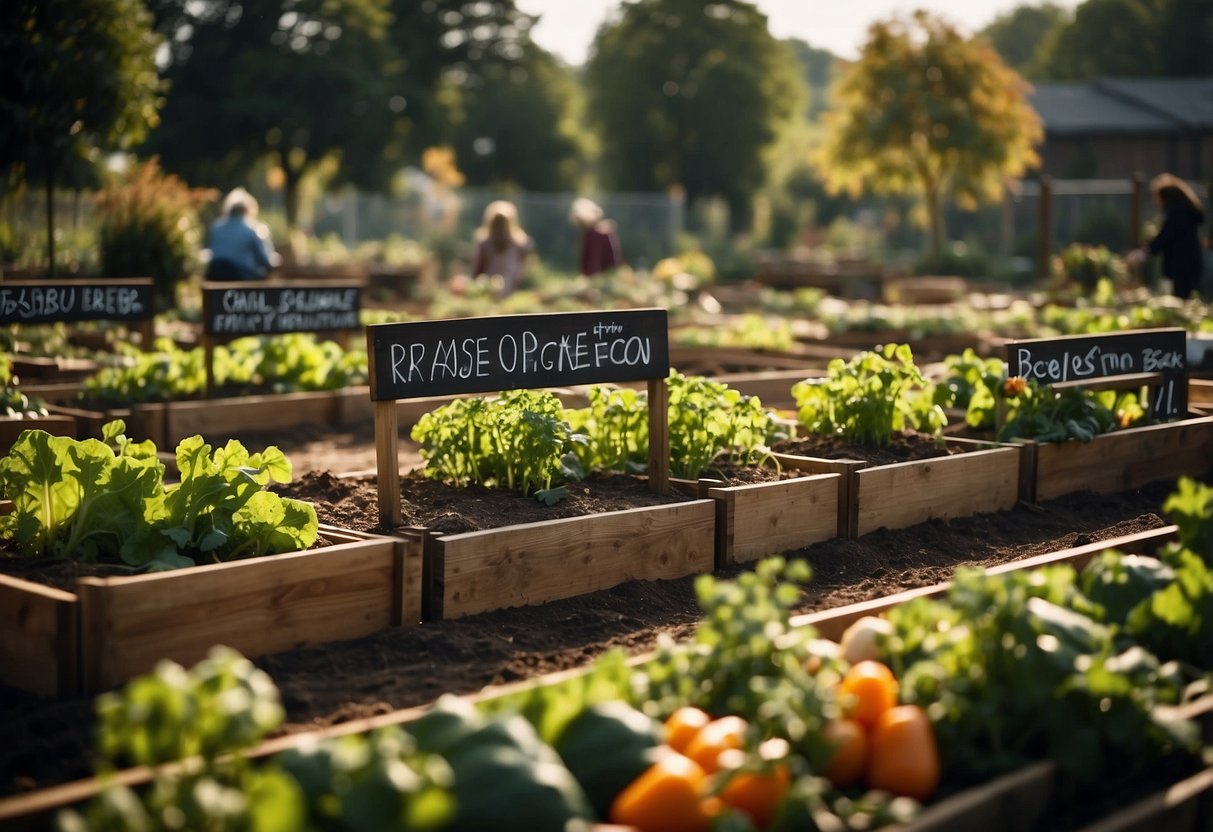
Raised vegetable beds are great for seniors as they make gardening easier. You don’t have to bend as much, which is good for your back and joints.
You can build these beds using materials like wood or corrugated steel. The cost of materials varies, but lumber for a typical bed might run between $100-$200.
For convenient access, the height of the bed should be around 24 to 30 inches. This allows you to reach your plants without straining.
5) Flower Arrangement Workshops
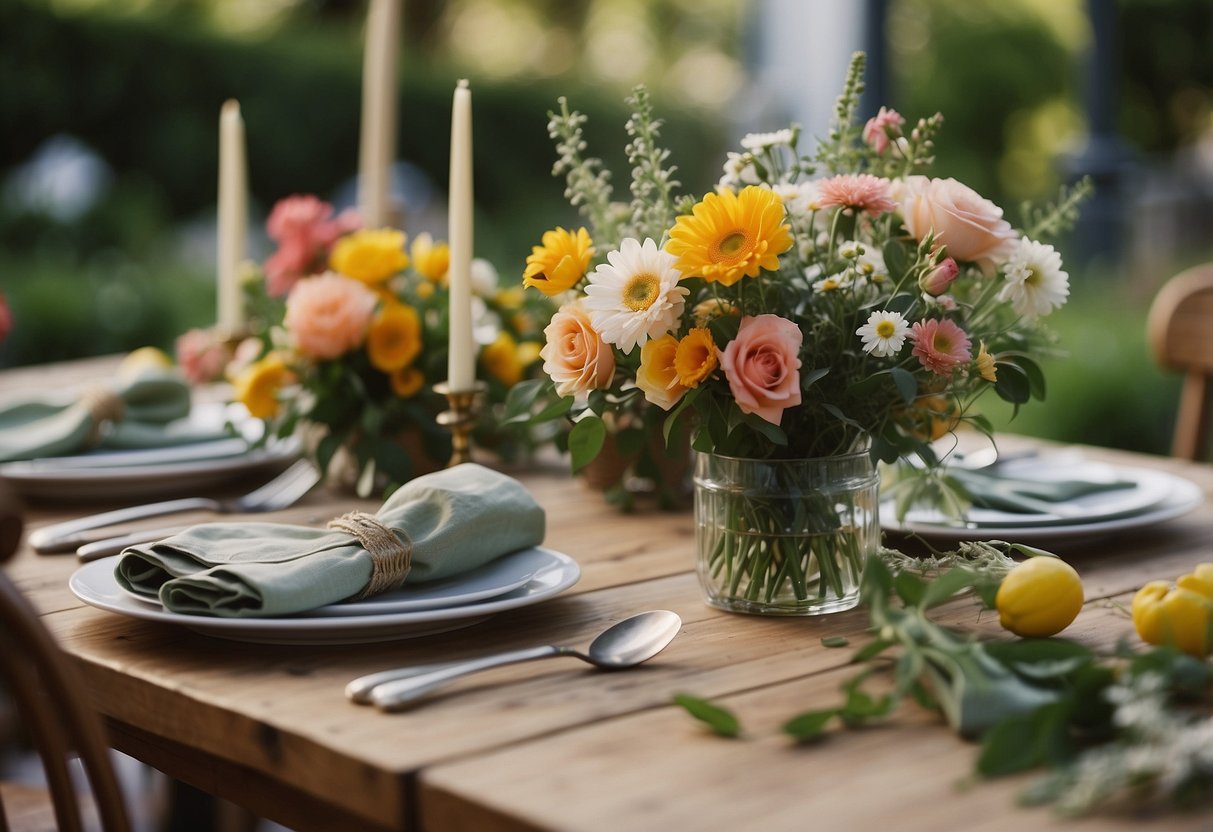
Flower arrangement workshops are a great way for seniors to engage their creativity. You can teach basic techniques like creating simple bouquets or more advanced skills like designing centerpieces.
Provide a variety of flowers for everyone to use. Fresh flowers like roses, lilies, and tulips work well.
Consider using seasonal flowers to make the workshops more interesting.
6) Garden Tea Party

A garden tea party is a wonderful way to enjoy the outdoors and spend time with friends. Pick a theme for your party, such as vintage florals or Alice In Wonderland.
Prepare some classic tea treats like cream scones with clotted cream and strawberry jam. Offer a variety of tea sandwiches like cucumber or egg salad.
Decorate your garden with pretty tablecloths and fresh flowers to set the scene. This will make your tea party feel special and inviting for everyone.
7) Seed Swapping Events
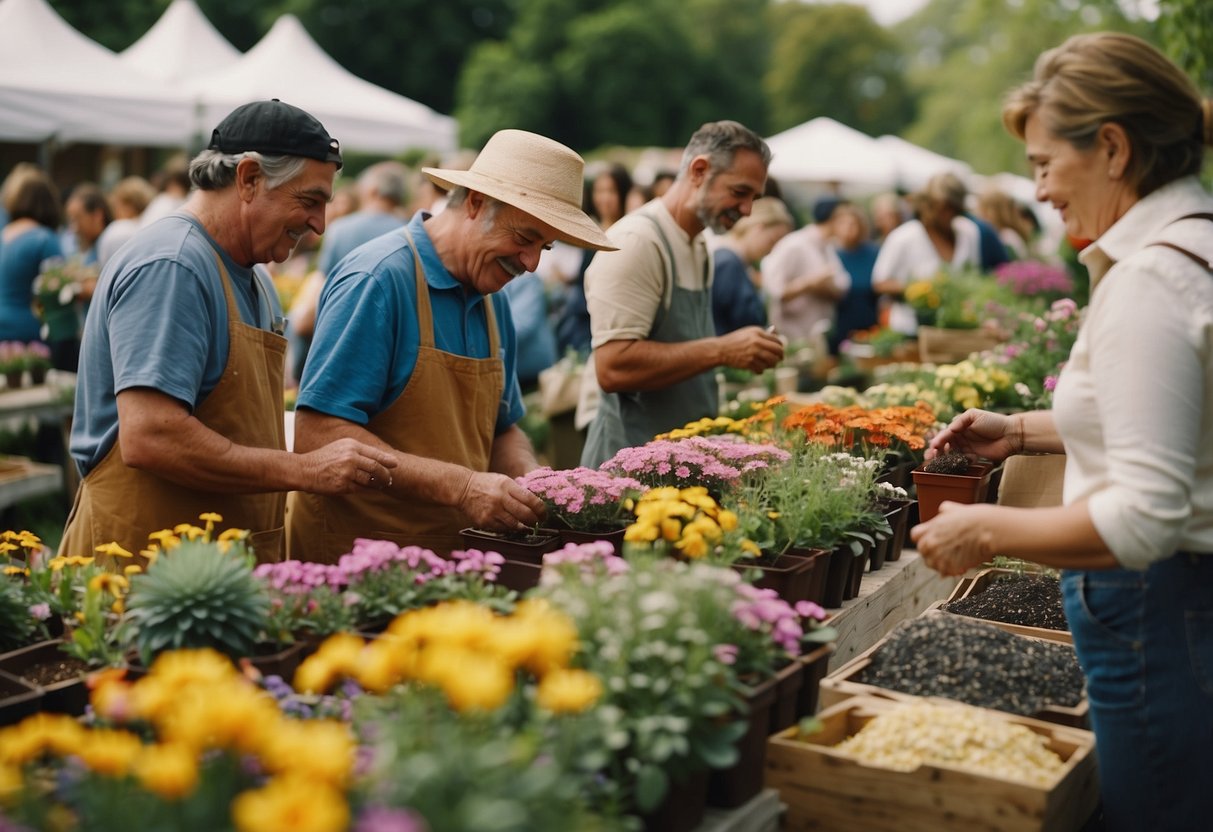
Seed swapping events are a great way for seniors to share their love of gardening. You can bring extra seeds you have and trade them for new varieties. This can help diversify your garden without spending much money.
Such events also bring people together. You can meet other gardeners, share tips, and make new friends. It’s not just about the seeds; it’s about the community.
Make sure to organize donation buckets for refreshments, as suggested by Lovely Greens. This helps cover costs and makes the event even more enjoyable.
8) Garden Crafts Corner
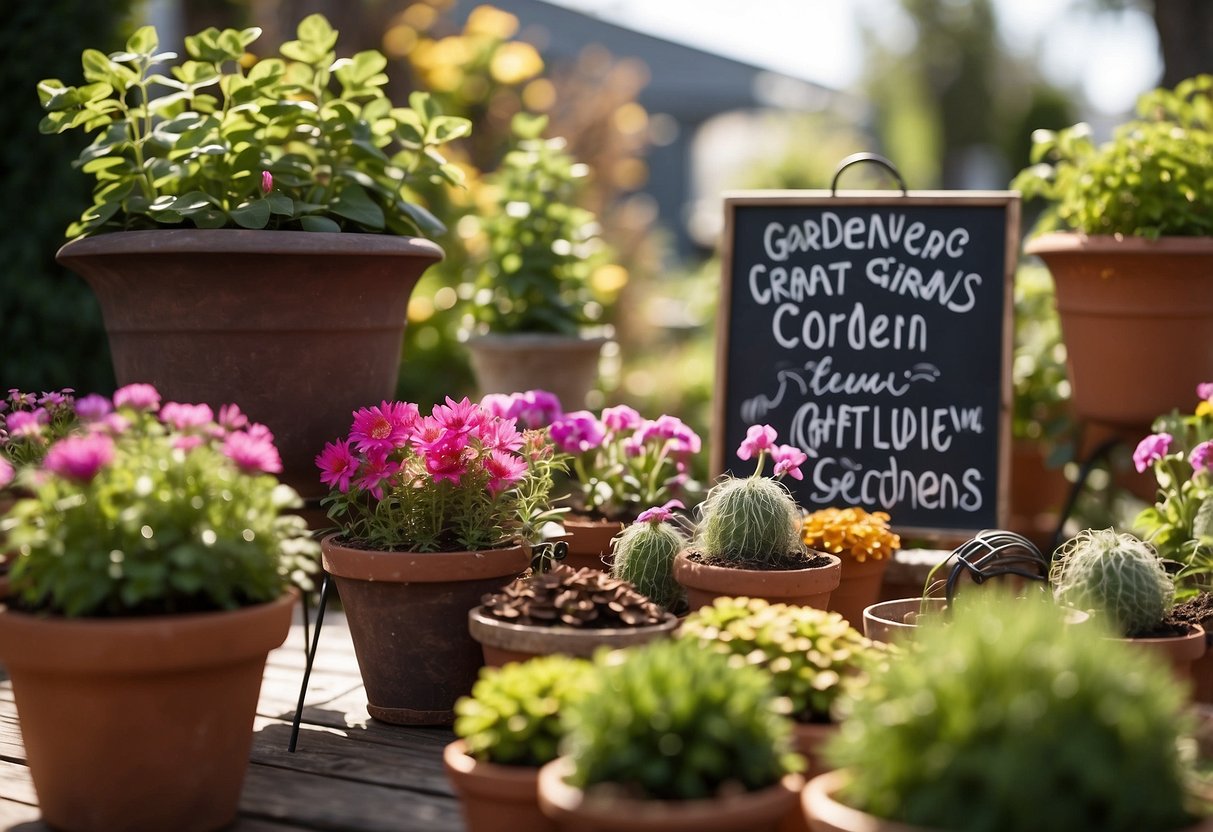
Creating garden crafts is a fun way for you to enjoy the outdoors and get creative. Simple projects like making birdhouses or painting flower pots add a personal touch to your garden.
Consider crafting wind chimes using recycled materials. You can make beautiful designs with bottle caps or colorful buttons. These projects are perfect for socializing and enjoying time with friends. Explore more garden craft ideas to brighten up your garden.
9) Victory Gardens

Victory Gardens became popular during World War II. Today, starting a Victory Garden can be a fun and meaningful activity for your garden club.
You can grow vegetables, herbs, and even flowers. It allows you to enjoy fresh produce and share it with others. It’s also a great way to stay active and spend time outdoors.
Your garden club can host planting days, share gardening tips, and have harvest celebrations. Transforming a small area into a productive garden can boost morale and create a sense of community.
10) Butterfly Gardens
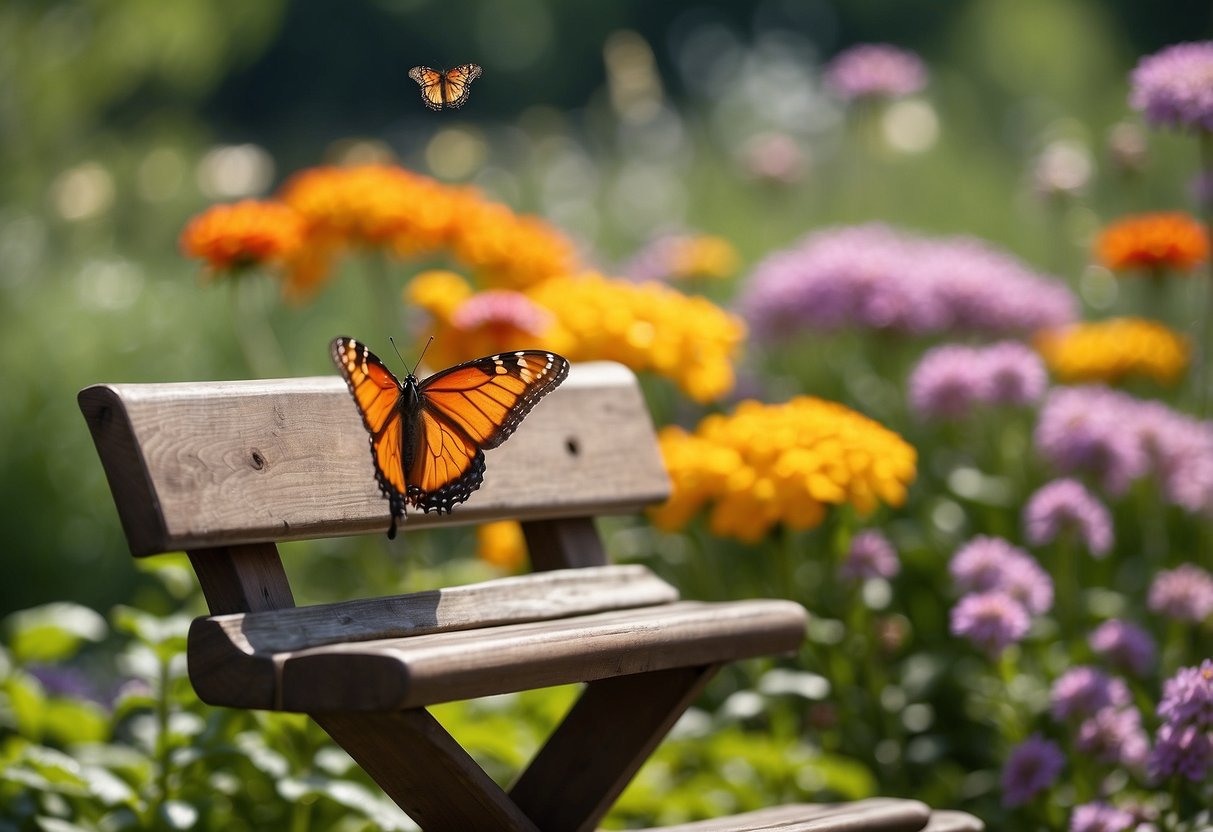
Creating a butterfly garden is a delightful idea for seniors.
To make it accessible, ensure the paths are wide and flat. Raised beds and container gardens can help avoid too much bending.
Include nectar-rich plants like milkweed and zinnias to attract butterflies. This creates a lovely visual and supports the local ecosystem.
Placing benches throughout the garden will provide resting spots and perfect places to observe butterflies.
For more guidance, visit this guide on creating a butterfly garden for seniors.
Benefits of Joining a Garden Club

Joining a garden club offers many great benefits. You get to enjoy physical exercise, improve your mental health, and make new friends.
Physical Health Benefits
Gardening keeps you active. Working in the garden, whether it’s planting, weeding, or watering, means moving around and stretching. This can help improve your strength, flexibility, and endurance.
Gardening can also be a good way to get outside and soak up some sunshine. Exposure to sunlight gives you Vitamin D, which is good for your bones.
If you have a hobby like gardening, it can also reduce your risk of certain chronic diseases. Regular physical activity is linked to lower chances of heart disease and diabetes.
Mental Health Benefits
Gardening can be very relaxing. Spending time with nature helps you feel calm and less stressed. It’s a quiet activity that lets you focus on the present moment, which is great for your mental well-being.
Being part of a garden club also gives you a sense of purpose. Planting seeds and watching them grow is rewarding. It boosts your mood and self-esteem.
Gardening can also sharpen your mind. Planning your garden and caring for plants involves thinking and problem-solving. This keeps your brain active and healthy.
Social Benefits
Joining a garden club helps you meet new people who share your interest in plants and gardening. It’s a fun way to make friends and share experiences.
Participating in group activities like potting parties or themed garden projects builds a sense of community. You work together, share your successes, and support each other.
Garden clubs often hold events and meetings where you can learn new things. These gatherings can be both educational and enjoyable, providing you with new skills and knowledge while socializing.
Types of Activities in Garden Clubs
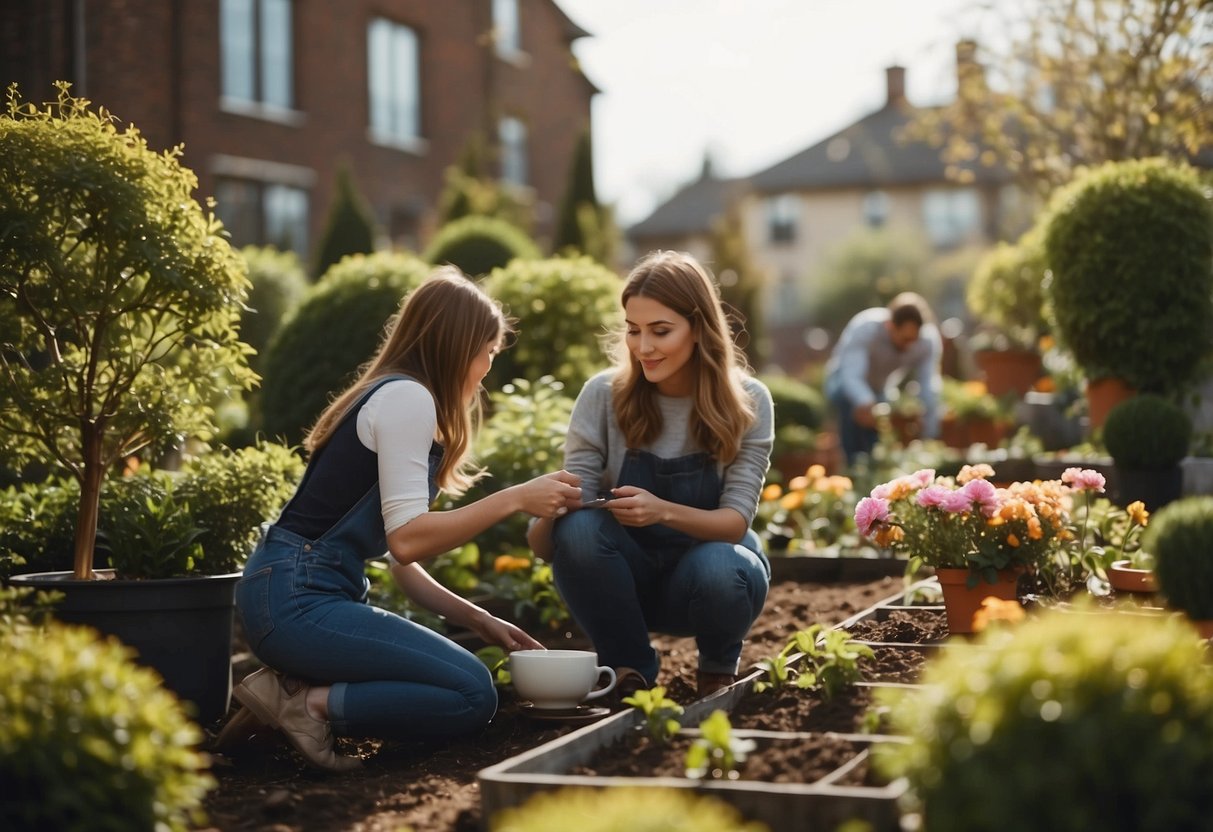
Garden clubs for seniors can include many enriching activities. Popular options involve hands-on workshops, classes, and trips to various gardens. These activities are great for learning and socializing.
Workshops and Classes
Workshops and classes offer a fun way to learn new skills. You can take part in vegetable gardening sessions, where you’ll plant, care for, and harvest your own vegetables.
Potting parties are another enjoyable option. Here, you’ll repot plants while chatting with friends. There are also craft sessions to make items like birdhouses and garden art.
Cooking classes can show you how to use what you grow, turning your garden bounty into healthy, delicious meals.
Field Trips and Garden Tours
Field trips and garden tours provide a chance to explore new places and find inspiration for your own garden. Visiting themed gardens, such as butterfly or sensory gardens, can give you ideas and spark your creativity.
Senior garden clubs can also arrange trips to local botanical gardens or other community gardens. These excursions are great opportunities to see different gardening styles and meet other garden enthusiasts.
Garden tours may also include stops at members’ gardens, offering a close look at the hard work and creativity of friends and fellow club members.
Choosing the Right Garden Club
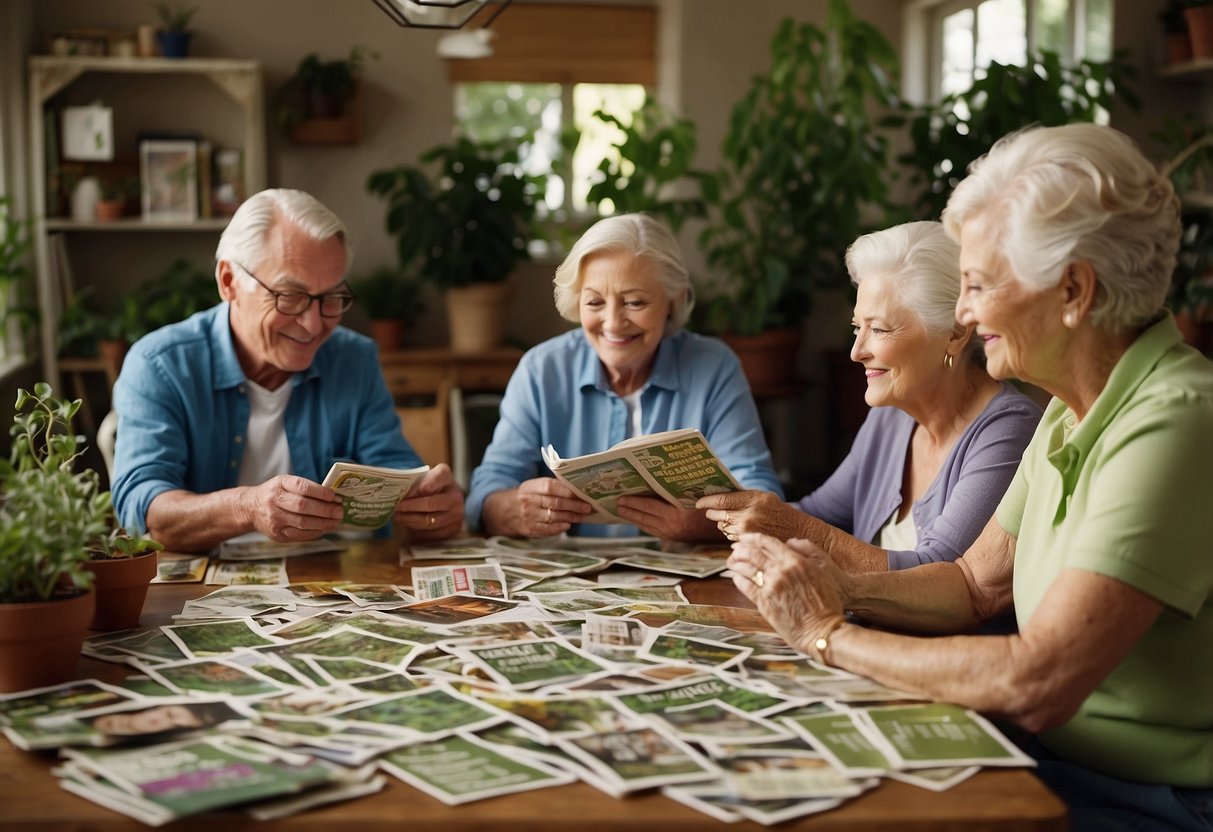
Choosing the right garden club is important for making sure you enjoy your time and connect with others who share your interests. Think about what activities you like, the club’s location, and how many people usually participate.
Consider Your Interests
When picking a garden club, it’s key to look at your interests. Do you like vegetable gardening, flower arranging, or garden crafts? Some clubs focus on specific activities. For example, a club might have potting parties where members repot plants together. Others might have workshops on creating DIY birdhouses or garden art.
Also, think about whether you prefer a club with hands-on learning or one that features expert talks and presentations. Clubs that include a mix of activities can keep things interesting and enjoyable.
Make sure the club’s activities match what you enjoy doing in the garden to get the most out of your experience.
Location and Accessibility
Location plays a big role in how convenient and enjoyable your club experience will be. Look for a club that meets at a place that’s easy for you to get to, like a local senior center or community garden.
Accessibility is also crucial, especially if you have mobility issues. Make sure the club’s meeting place has features like ramps, wide pathways, and seating areas. Some clubs might meet in private gardens or local parks, so check how easy it will be for you to get around.
Picking a club that’s close by and easy to access can make your gardening experience much more fun and stress-free.
Club Size and Participation
The size of the garden club can impact how you feel about participating. Smaller clubs often offer a cozier, more intimate setting where it’s easier to get to know everyone. Larger clubs may have more resources and events, but can feel less personal.
Think about whether you prefer a close-knit group or a larger, more diverse membership. Larger clubs might offer more organized events and workshops, while smaller clubs can provide a more collaborative feeling.
Check if the club encourages active participation or if members mostly attend meetings passively. Active clubs can be more engaging and provide more opportunities for learning and socializing.







